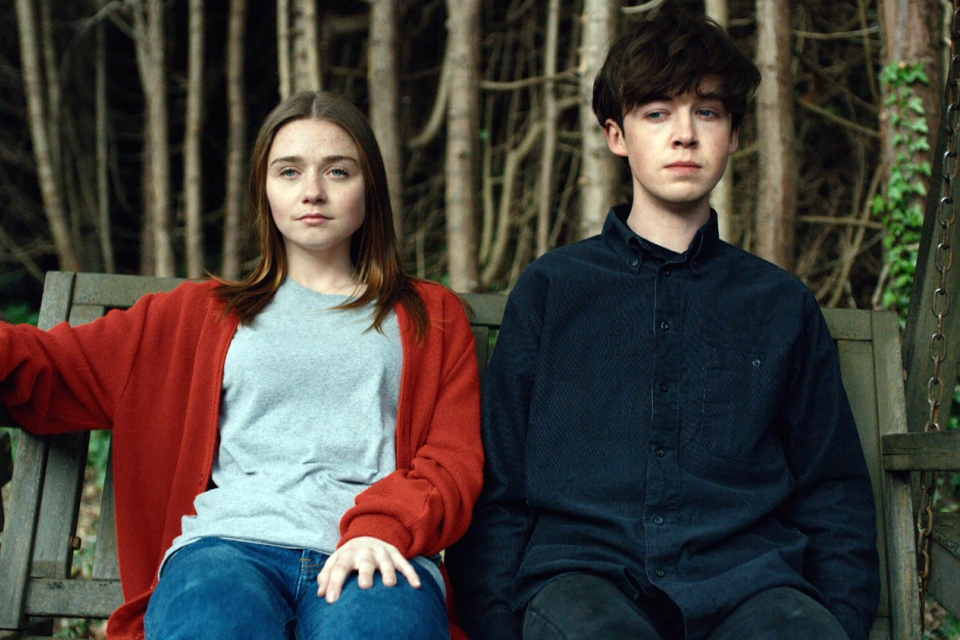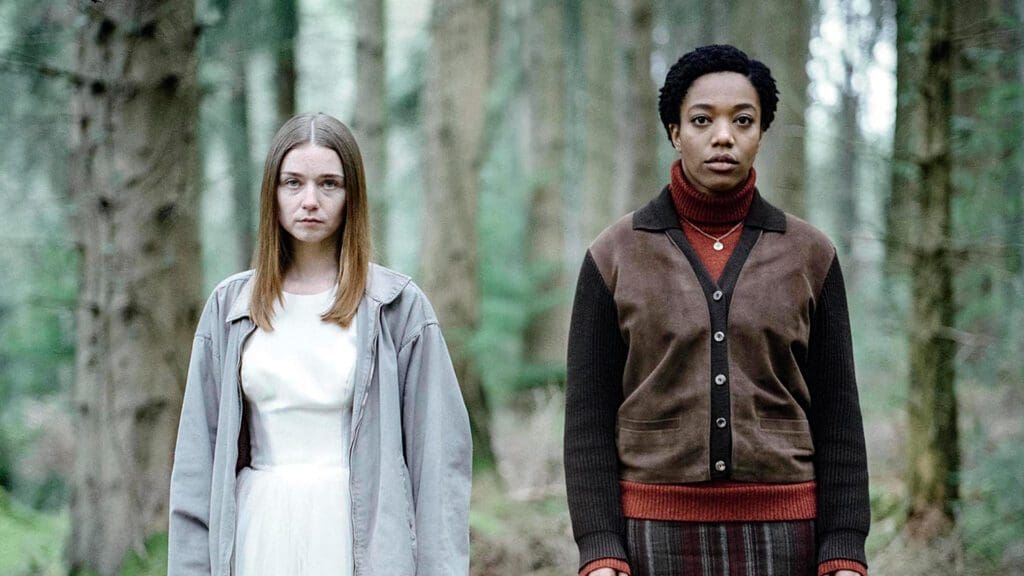Summary
A worthy if inferior follow-up, The End of the F***ing World Season 2 makes up for its lesser energy with a deeper examination of what makes its characters tick.
This review of The End of the F***ing World Season 2 contains spoilers for the first season.
The End of the F***ing World was the rare show that ended on a cliffhanger but probably could have done without a second season. In the deliberate ambiguity of the attention-grabbing freshman outing, which aired first on Channel 4 in the UK and then on Netflix everywhere else, the story of dark, doomed teenage love reached a near-perfect point of catharsis. Not knowing what happened was part of the point. Budding psychopathic serial killer James (Alex Lawther) and his tearaway girlfriend Alyssa (Jessica Barden) had found a deeper understanding of themselves in each other, and in so doing they had realized they were ill-fitting for a wider world that had never noticed they were suffering in the first place.
Their crimes weren’t victimless. But the man who suffered most at their hands – a sexually predatory professor, Clive Koch (Jonathan Aris), who they killed in self-defense – was deserving of his fate. The death penalty hardly seems a fitting punishment, but that’s what it seemed like James got. What he also got, though, was the chance to sacrifice himself for Alyssa, and to prove once and for all that he wasn’t the psychopath he suspected himself of being. He did that. Only, The End of the F***ing World Season 2 means that he didn’t.
It takes an episode and a half of this second batch of eight to confirm it, but no, James didn’t die on the beach. He survived with some badly pulverized internal organs and had to slowly learn to walk again, but he also swerved both death and a prison sentence. In exchange, he lost Alyssa, whose panicked mother took her to the remote English countryside to live with her sister, Leigh (Alexandria Riley), and eventually, his father, whose excitement over being able to connect with his emotions and reconnect with his son triggered a fatal heart attack. For most of Season 2, James carries the urn of his ashes around, looking halfheartedly for a place to scatter them. That he doesn’t find one until the very end only confirms what was obvious from the beginning – he was really clinging to his pain.

This has always been a show about pain, but more so what one does with it, a sentiment expressed explicitly by new, vengeful character Bonnie (Naomi Ackie), in a key sequence close to the end. Bonnie is an emotionally repressed killer too, but is also, crucially, the “girlfriend” of the late Clive Koch, whose sordid attention she mistook for love after growing up not knowing what the real thing looked like. Now, she’s out for revenge, wilfully ignoring the burgeoning mountain of evidence that confirms Koch never loved her in the first place and that he brought his fate upon himself. Ackie does wonders with this role; it’s a virtuoso performance, an expert example of finding the right expressions when no words will do.
Bonnie’s story obviously interweaves with James and Alyssa’s, but their love story – or, more accurately in this season, their break-up story – is largely kept separate, left to develop at its own pace and in its own way. James, laid up in the hospital, never stopped pining for his lost love, while Alyssa, forced into a new environment that was just as alienating to her as the previous one, coped by trying to simulate the normalcy of a waitressing job and marrying the nearest nice-but-dim young man, Todd (Josh Dylan). By the time she reunites with James, she’s ready to run, but she has no idea where to or for what reason. They’ll find both out together.
The End of the F***ing World season 2 predictably doesn’t have the same manic energy or sense of revelation as the first go-around, but it retains the pitch-black nihilism and expert situational humor – it might even be funnier, in large part because of how much deeper the barbs cut now the characters have exposed how vulnerable they are. The themes are, in essence, the same; it’s a love story, sure, but one in which love is a means by which to navigate the convoluted alleyways of lingering trauma and grief. That’s not much different from the first season, and if there’s a knock against this one it’s that it revisits the same emotional territory without venturing further. But the examination is, admittedly, deeper this time, and turns up more hopeful resolutions. The first season was better, but the second makes a strong case for itself all the same.



